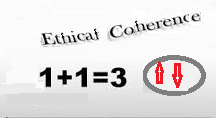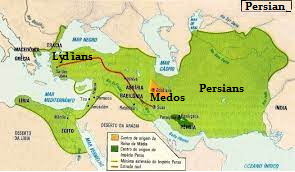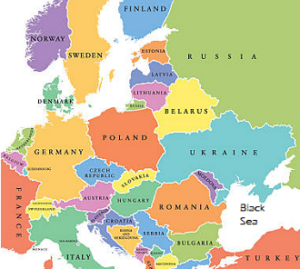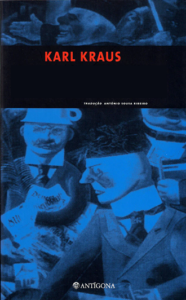
Arquivo para September, 2023
Good people can do evil
Far from the aporia (ignorance of evil) is the realization of good, the universal good, the common good, the good that sees and explains the will of the Other, the one that eliminates the symbolic nature of evil.
realization of good, the universal good, the common good, the good that sees and explains the will of the Other, the one that eliminates the symbolic nature of evil.
Hell is paved with good will, but it is not quite like that, because if it is a right intention it can produce fruit at the right time, but there is good not done and poorly done, that is evil.
There is a determination in the will, which is intention, the topic has already been treated by countless philosophers, most clearly in phenomenology where it is an essential category, but intention requires a habit, and making it a habit requires courage and determination.
There is confusion about intention and confusing it with purpose, psychologists don’t like the term very much because it involves the future and places the cause of behavior in individuals and not in their life history, many hasty and mistaken judgments start from “purpose”. .
However, a purpose made in order to overcome traumas, bad conditioning or something that disturbs a healthy and intentionally active mind for personal and social good, is a purpose that leads to an intention linked to consciousness.
In philosophy, the term intention is linked to and is a subcategory of consciousness, and this is very different from the magical action that some defend as the “law of attraction”, which is why psychologists do not like it, it is about activating consciousness and with this make the intention healthy.
This conscious intention leads to a flow of learning that re-elaborates and makes clearer awareness of the possibilities and healthy perspectives for life and makes the future present in actions that lead to this learning and elaboration of intention.
So it’s possible for someone to go and not go, just as it’s possible for someone to say maybe I’m not going, but ends up going, assuming, of course, a healthy direction of a straight intention.
A biblical parable that explains what will is in a fuller sense is the one that tells how a father who owns a vineyard invites his two sons to go and work in the vineyard (Mt 21,28-30), the first one said I will and no It was, the second one said I won’t go and it was, which of the two fulfilled the father’s wishes, everyone responded that it was the second one, so intention is different from purpose and is related to conscience.
The structures of evil
If evil is the absence of good, it is also possible that in our individual actions, through carelessness, intention or even malice, wanting to do good we do evil, as Ricoeur explained in symbolic evil.
that in our individual actions, through carelessness, intention or even malice, wanting to do good we do evil, as Ricoeur explained in symbolic evil.
After evil is socially structured, it seems to give meaning to what in full awareness we know is not moral or socially correct, it is not about political correctness here, but that structure of meaning that is given through symbolic language, a crude example, but what is the point here, the different types of prejudice that enter society.
It can be didactically divided into three topics, the first being within human experience, the second within various discourses where evil has a philosophical importance of aporia, this is part of philosophical thinking, and the third as a determination of the language that asks whether evil exists in itself or is a reality of naming things and actions around existence.
It is therefore possible to discuss it outside the Manichaean sense, they are not opposing poles, but rather symbolic structures that penetrate our daily lives as experience, as aporia (difficulty or rational doubt about their objective existence) or symbolic element of language.
The symbolism of evil was deeply developed in Paul Ricoeur’s book, it is linked to human transcendence that somehow determines the denial of the positive values of human existence: defense of life, appreciation of solidarity, protection of the weakest, etc. aporia is one that, due to its clear indefiniteness, falls into the indeterminacy of good.
Aporia not only denies evil, it denies human evolution (social, technological, ecological and moral), it ignores the imaginary, transcendence and moral values beyond the apparent ones, it denies the Other, imagining that in this way I will be affirming its Being, which in truth does not understands it or is not integrated, thus prevailing an idealistic rigidity about what transcendence would be.
Building our inner being, placing it at the service of society in every way, in solidarity with everyone else, is not just a good thing, it is a condition for civilizational evolution (ecological cities, for example, image)
Civilization evolves not only because it builds new structures, technologies and human values, but because at some point in this process it goes through imagination, transcendence and looking at the Other and around.
Narrative and ethical coherence
Polarization has led to ethical relativism and ethical relativism leads to social instability, there is no coherence between what is said and what is done, everything is done to justify this or that view.
relativism leads to social instability, there is no coherence between what is said and what is done, everything is done to justify this or that view.
Ethical coherence must accompany all of our lives or it is not ethics, just a convenient behavior, we need to cultivate it in social, professional, religious and family terms, it is not just in one area because the behavior becomes a habit.
The nudity at a university volleyball game (sporting event at a university), the discussion about abortion, the logic of ideological political punishment and the emblematic speeches in the country’s official bodies are not a mere coincidence, they are not autocratic attempts, they are the lack of results of a long social process where ethics does not predominate.
An ethics professor at a university, after discussing a subject in class, asked students during the break to write down at least one unethical act in the canteen: feet on the wall, papers on the floor, jumping in line, etc., when all students returned from break they had something to tell.
It is also not about exaggeration or the absence of punishment, but the fair measure, what in law is called disproportionate punishment, but the absence of punishment is also dangerous.
The problem is that Discipline and Punish is a process that can lead to the logic of a madhouse, Foucault in his famous book shows that justice in his time stopped applying deadly torture and started seeking the “correction” of criminals, but the practices Educational measures are rare and today even worse, it has become unilateral, that is, the punishment depends on the condition and situation of the defendant.
It is what Byung Chul Han called psychopolitics, a kind of return to torture through propaganda and a distorted view of true social problems, it is about fighting the “enemy”, and the law only applies in this case.
The narratives confuse society, create religious holes and animosities, are not conducive to any healthy social process, create more division and injustice.
The good and wars of Darius
The separation between secular and religious human historie´s is not always possible without an adulteration of both by those who do it in a particular way.
human historie´s is not always possible without an adulteration of both by those who do it in a particular way.
This process also includes the question of good and evil, it is common thought that those who are in this or that religious confession will be “saved”, or even, who have somehow accepted God in their lives, this is just a part of the truth .
The biblical reading says: “not everyone who says ‘Lord Lord!!’ will enter the kingdom of heaven” (Mt 7:21) and so the understanding of what it actually means to do good pleasing to the heavens is not even remotely the simple formal or nominal religious commitment requires the will.
The will is also not like a belief that spreads today, the daily reaffirmation of the desire for a certain thing, called the law of attraction or “the mystery”, nor is it also the will to power as Nietzsche thought, for the philosopher everything in the world it is Will to Power because all forces seek their own expansion.
Will is, in a spiritual sense, that which is in line with the power that we are and that we must develop, one would say a vocation, but in everyday acts that require the ability to discern between one’s own will, often impetuous, and that which is a good thing.
We can better distinguish between evil, the absence of good, and good, which we developed last week as the inadequacy of good: illicit enrichment, being superior to others, judging by our own non-universal criteria, in short, an infinite number of issues can be an evil. not apparent.
A universal story cited in the Bible is that of Darius in the Persian Empire, not being religious, he appointed the prophet Daniel to one of his provinces (called satrapies), determined that the Hebrew people be repatriated and authorized the reconstruction of the temple, as per narrates the book of Ezra.
Without being religious, he recognizes the Hebrew people, so Darius has a privileged place in biblical and religious history. Another curious event is the war of the Medes and Lydians, after an indecisive battle, on May 25, 585 BC, both armies end the fight by a sign in the sky, which was actually a lunar eclipse (a similar one will occur on October 14).
This date was confirmed by scientific calculations, being one of the first recorded annular eclipses.
Thus, one can understand historical and divine designs even without belief, as King Darius did, and do what is fair and good for people and humanity.
In times of threat of war, finding this asset can prevent major disasters.
A cold and dangerous European winter
We are entering spring in the southern hemisphere and autumn in the northern hemisphere, in Europe the concern about fuel stocks for the winter due to the Russian embargo is growing, there is a danger of rationing and a rush to use coal, in Poland for example there is already queues to buy stocks.
hemisphere and autumn in the northern hemisphere, in Europe the concern about fuel stocks for the winter due to the Russian embargo is growing, there is a danger of rationing and a rush to use coal, in Poland for example there is already queues to buy stocks.
But this is not the only aspect, the reduction in the supply of diesel by Russia will affect the entire world market and the price of fossil fuels could skyrocket, according to Abicom (Brazilian Fuel Association) the defense in Brazil is 7% in relation to the international market and 12% in the case of diesel, and may increase.
Another crisis is that of food, because Ukraine has maintained a large part of its production, which helps the international market, but there is a conflict over the flow through Poland where the country’s producers have protection and the port of Gdansk is famous, since in Black Sea military clash in Crimea grows.
The geopolitical crisis is the most serious problem, if Ukraine loses part of its territory, Baltic countries such as Estonia and Latvia which border Russia and Belarus, and Lithuania which borders Belarus feel threatened (map), and the question is who will be the next target.
The news talks about NATO’s help, but these small countries, due to their fragility, have supported Ukraine militarily and materially, there are even several reports of military enlistment in the war in Ukraine.
The United States announced long-range missiles (ATACMS type) and winter is always a strategy during war due to difficulties in logistics and troop mobility, now also due to supplies and heating energy.
Ukraine proposed a peace plan that was rejected by Russia, Zelensky went to the assembly that was taking place and had bilateral talks, including with Brazil, which certainly irritated Russia, but beyond the principles of peace and mutual aid there is no indication of a Brazilian position in the confrontation.
What can be expected for winter, if there is no peace, it is dangerous not only for the countries in conflict, but for all of Europe due to its proximity and everyone due to economic issues, fuels are just one aspect.
Administer the common good and peace
I thought about keeping silent and just writing PEACE, PEACE, PEACE today, but that would be silent.
writing PEACE, PEACE, PEACE today, but that would be silent.
Managing the common good is making peace prosper, disregarding it is allowing a large space for hatred, intolerance, violence and on a larger scale: war.
The 21st of September was established by the UN as an international day of Peace, the secretary general António Guterres cited in a video the effect of conflicts that expel a record number of people from their homes, and did not fail to also talk about these factors people, other factors such as: fatal fires, floods and high temperatures, combined with poverty, inequalities and injustices in a reality of distrust, division and prejudice.
In Italy, a group with numerous social initiatives launched a campaign “Italy united for peace”, the Community of Sant’Egidio stands out for a dispassionate and bilateral vision on the problems of wars and peace, it has the authority to talk about peace.
On the 10th to 12th of September in Berlin, Germany, they had already promoted a religious meeting that they called “The boldness of peace”, and there was no shortage of reflections on social inequalities, intolerance and injustices present in various areas across the planet.
We need to manage what Nature, the Planet and human development itself have given us to allow for a more fraternal, more just and more humane world.
For those who believe, all this is a divine gift, but it is necessary to manage it well as we will be charged in some way for the consequences of our actions, as the biblical parable says of the employees who were entrusted with talents through the owner of a vineyard.
The contract workers arrived, but as he needed more he went to the square and also hired those who were unemployed, and asked why they were there without work, they replied: “because no one hired us” (Mt 20,7) and then they were also hired.
At the end of the afternoon he paid the same salary, 1 silver coin to everyone, and some who were there from the beginning didn’t think it was very fair, but the boss remembers that the agreement was a silver coin so everyone was receiving the agreement.
So the meaning of the common good is that everyone has the right to a decent wage, but correct administration and honesty and zeal on the part of those who pay are necessary, it is fair for everyone to receive a decent wage.
But peace also requires a heart open to the just and dignified rights of the excluded other.
The Symbolism of evil
One of Paul Ricoeur’s characteristics is the search for explanations about who men are and the circumstances that affect them, among them there is an approach to evil as it affects all people, directly or not.
for explanations about who men are and the circumstances that affect them, among them there is an approach to evil as it affects all people, directly or not.
This search in philosophy comes from Plato, who defined the Supreme as: the final destiny of all things, which for Aristotle is the best good, linked to the logos, thus science, while in Christian philosophy it will be God and paradise.
Also important is the Neoplatonic thought of Augustine of Hippo, for whom evil is the absence of good, and thus is not its opposite, but its absence.
Medieval philosophy associates Good with paradise and evil with that which leads man to his destruction, not only in eternal life, but already in this life, see for example Boethius in his “Philosophical Consolations” and Thomas Aquinas for whom it is an “imperfection” of the Being, of virtues in the nature of the being, which deprives it of good.
In contemporary philosophy, the idealist and Enlightenment vision relativizes it and will almost inevitably fall into Manichaean views of evil and good, that is, arbitrary, much more dependent on conventions and social collusion.
Paul Ricoeur and Emmanuel Levinas stand out in their treatment of good, they revisited the question of the relationship between good and being in a similar and different way.
For Levinas, good precedes being, but it is not in consciousness or in discourse, thus it transcends being, thus defining it as the otherness of being, that which links it to infinity and its ontological sense, it is that of the ethics of Other.
Paul Ricoeur, when penetrating through hermeneutics more deeply into the question of evil, takes up the question of myth, especially the Adamic myth (Cain killed Abel) where myth “is the sought-after place of fusion between history and fiction” (Ricoeur, 1976, p. 295), but also addresses the “symbolic” issue of evil.
This text cited above is fundamental to understanding Ricoeur’s thought because he deals with it within what for him is today’s “crisis of philosophy”.
The symbolic issue of evil is the salvific death that does not end, but reinscribes the history of humanity in mythical guidelines and even the Enlightenment and idealism are not outside this, as they will create symbolic structures of “salvation” of man.
Ricouer, P. (1976) La philosophie aujourd´hui: entretien sur ce qu´on appelle la crisis de la philosophie. Lousanne: Grammont-Salvat, 1976.
Ricoeur, Paul. (1969) The Symbolism of Evil. Boston : Beacon Press.
The return of evil
Even if due to naivety or social context, from time to time demons, existing or not, come back to haunt us, there is a truth between reality and fiction: it exists, if not in the imaginary (as some think) also as a real entity.
to time demons, existing or not, come back to haunt us, there is a truth between reality and fiction: it exists, if not in the imaginary (as some think) also as a real entity.
Horror films, almost all mere fiction, exist, and their audience is not small, as in the case of “The Exorcist” (1973) and “A Nightmare on Elm Street” (1980), two classics of the genre, but there are films that can stand out as works of art: “Nosferatu” (1922 and remake 2018) and “Get Out!” by director and screenwriter Jordan Peele, who competed for the Oscar for best film in 2018.
In the work directed by F. W. Murnau (1922) there is something of German expressionism, with techniques of using shadows, treated more as a madness around the unknown, also remember that we are in between the wars when Germany and Russia sign the Treaty of Ropallo, trying to form a counterweight in the global geopolitics of the time, an agreement that would last until Hitler.
There are certainly other films, however, they are now reappearing with a more strongly religious tone and color: “The Pope’s Exorcist” (Julius Avery, released this year) which talks about events that happened to Father Gabriele Amorth, who was officially an exorcist from Rome recognized by the Church Catholic, in the film directed by Russell Crowe (Guys – Nice Guys, War Promises – The Water Diviner), the other demon film is Nefarious (Chuck Konzelman and Cary Solomon, based on the 2016 novel by Steve Deace: A Nefarious plot) .
While Nefarious is another fiction about the existence and tricks of the Devil, with some Christian contours, The Pope’s Exorcist is based on real events narrated by Father Gabriele himself, who performed more than 60 thousand exorcisms and certainly some notable ones were selected, among From the conversations that are narrated there, I quote the most important one, in which during a possession he says that the devil can only do what God has allowed, his power is limited.
I don’t like the genre, but I had more patience with “The Pope’s Exorcist” out of curiosity and an attempt to understand the problem, but situated in a context of confusing social issues and the danger of an even bloodier war than those currently underway, but Without Manichaeism, the power of evil is not greater than that of good, and its effects are not comparable.
Evil has a real existence due to the absence of good, so thought Augustine of Hippo, who was a Manichaean in his youth.
A voice for peace
There were few writers and journalists who did not become involved in the mid-20th century in the ideological and nationalist appeals that Europe was making amid the weakening of the Austro-Hungarian Empire and the growth of militaristic sentiments that led to war, Karl Kraus, a playwright and writer Austrian (they were born in 1874 in a village in Bohemia (today the Czech Republic), then part of the Austro-Hungarian Empire.
not become involved in the mid-20th century in the ideological and nationalist appeals that Europe was making amid the weakening of the Austro-Hungarian Empire and the growth of militaristic sentiments that led to war, Karl Kraus, a playwright and writer Austrian (they were born in 1874 in a village in Bohemia (today the Czech Republic), then part of the Austro-Hungarian Empire.
Unlike the journalism of his time that he criticized, those that judged seers like Raphael Schermann who was in evidence in Vienna and who criticized him, Karl Kraus’ criticism was directed at the political-ideological engagement of the journalists of his time, which he criticized since the vulgar language that they used even the moral decadence of their time that they mirrored.
Famous and known today for his book “Aforismos” (Arquipélago Editorial, 2010), which he defined as “Aphorism never coincides with the truth; it’s either a half truth or a truth and a half”, he had several works published recently in Portuguese, there were the releases in Portuguese of the works “The last days of humanity” by the Portuguese publisher Relógio d´água and more recently of texts from his newspaper “ Die Fackel” (The Torch or The Archote, as the Portuguese prefer) which were written during the First World War, which was one of the most prominent opponents.
There was an incomplete edition of The Last Days of Humanity, edited by Antígona in 2003, by its Portuguese translator Antônio Souza Ribeiro, recalls the young man who arrived in Vienna and had already written “Literature in Demolition” in 1897 and “A Crown for Zion” in 1898, as “In fact, what will be the distinctive mark of Kraus’s position in the Viennese literary field, defined by Edward Timms as a “combative isolation” is clearly outlined here” (pg. 96).
While the “media” of his time engage in ideological discourses of his time, his translator writes “… on the contrary, Kraus is laying, in a pioneering way, the foundations of what could today be called a critique of the media, in which constitutes one of the most strikingly topical dimensions of his work” (pg. 97).
Although lonely, Karl Kraus did not close himself off: “The reality is that, throughout his life, while facing irreducible hatred within the Austrian and German literary field, Kraus cultivated a very wide circle of relationships, which intersects with relevant intellectual and artistic circles and with several prominent names from the first decades of the century…” (pg. 97).
With the outbreak of war in August 1914, only one issue of the Magazine “Die Fakel” would appear in December 1914 with the 20-page text “In this great era”.
After publishing a new short text in February 1915, the magazine “…republished itself, in October 1915, with an extensive number of 168 pages, to establish itself as a space of violent rejection of the war policy in all its aspects” (p. 101).
In addition to his importance for the history of journalism, Karl Kraus brings great reflection to the present day.
RIBEIRO, Antônio Sousa. (2003) Os últimos dias da humanidade (The last days of humanity – reading manual), Portugal, Porto: Ed. Teatro Nacional de São João (Manual de Leitura Últimos Dias final.pdf (tnsj.pt)).

